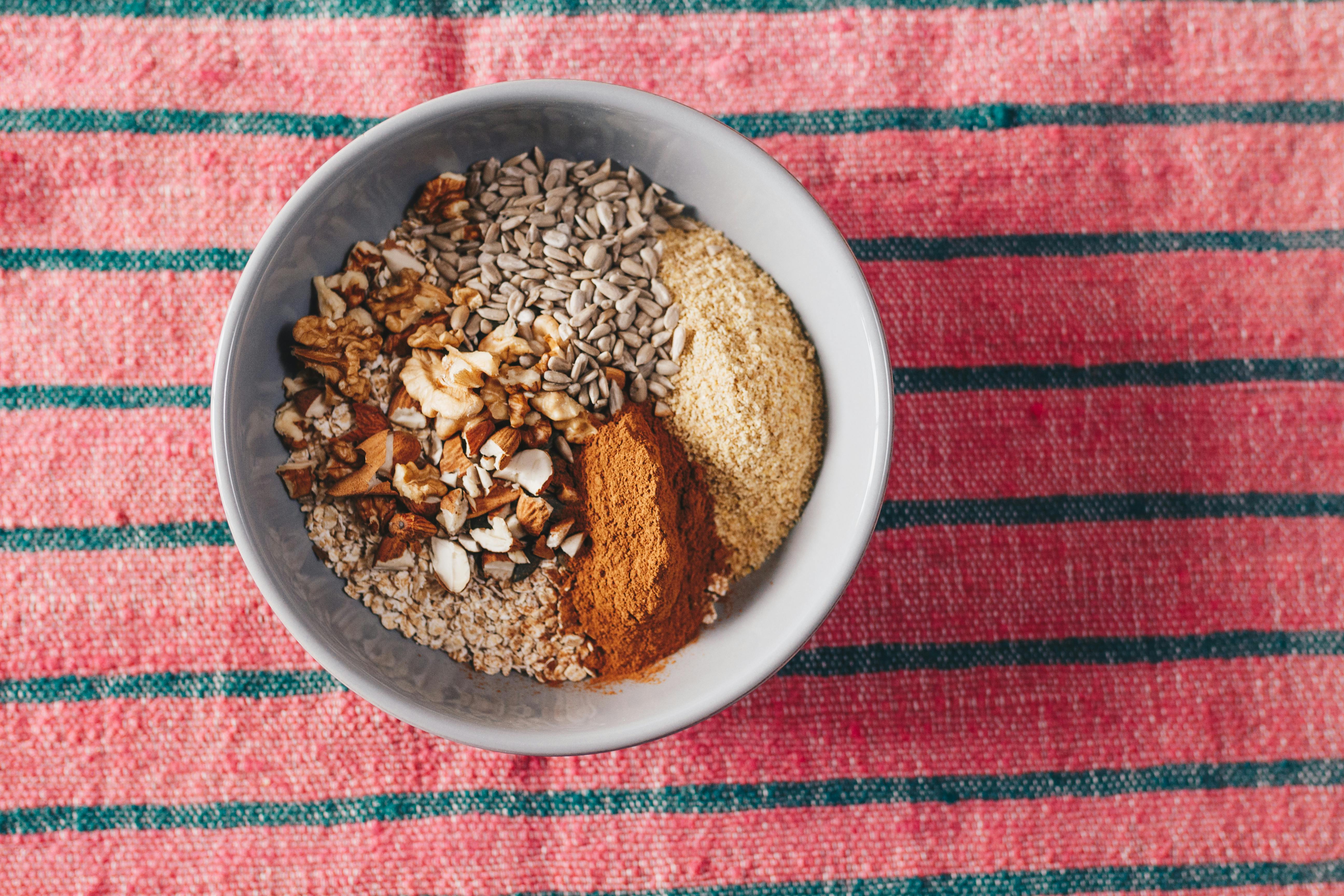
Top 5 Practical Solutions for Managing Type 2 Diabetes Diet in 2025
Managing a type 2 diabetes diet is crucial for maintaining optimal blood sugar levels and overall health. As we advance into 2025, the evolving understanding of diabetes and nutrition offers new strategies for effective meal planning and dietary choices. Implementing a diabetes-friendly meal plan can empower individuals to make informed food choices, control their weight, and improve their quality of life.
This article will explore five practical solutions for managing diabetes through diet, highlighting the importance of meal planning, smart carbohydrate choices, and other nutrition tips geared toward effectively managing this condition. Understanding the nuances between different food options, cooking methods, and meal timings can lead to better health outcomes. We will finish with actionable tips to integrate these practices into daily life.
Ultimately, this guide aims to empower readers with the knowledge needed to thrive while managing type 2 diabetes through diet.
Essential Meal Planning Strategies for Diabetes Management
Meal planning is a vital aspect of managing type 2 diabetes effectively. Establishing a regular routine helps in making healthier choices, leading to better blood glucose control. With thoughtful meal prep, individuals can avoid the pitfalls of last-minute food decisions that may not align with their dietary needs.
Understanding Portion Control for Diabetics
Portion control is a key strategy in diabetes management, as it helps manage calorie intake and blood sugar levels. For instance, using smaller plates can create the illusion of a fuller meal without overeating. Moreover, familiarizing oneself with serving sizes is essential—using measuring cups, a food scale, or even everyday items like half a baseball to gauge portion sizes can promote consistency.
Choosing Low Glycemic Index (GI) Foods
Incorporating low GI foods into your diet can minimize spikes in blood sugar. Foods like whole grains, legumes, and most vegetables are excellent choices. They release glucose slowly, promoting steady energy levels. For example, opting for quinoa instead of white rice can make a significant difference in blood sugar response.
Incorporating Diabetic-Friendly Recipes
Finding and utilizing diabetic-friendly recipes can make meal planning enjoyable and diverse. These recipes often emphasize whole, natural ingredients while minimizing added sugars and unhealthy fats. Exploring new dishes—such as vegetable stir-fries, lean protein options like grilled chicken, and fiber-rich lentil soups—can enhance dietary options.
Regular Check-Ins with Health Professionals
Engaging with healthcare providers can offer personalized strategies and reinforce effective habits. Regular check-ups allow for adjustments in dietary plans based on blood sugar readings, weight changes, and overall health progress. Nutritionists can further aid in developing bespoke meal plans tailored to individual needs, helping to ensure effective diabetes management.
Utilizing Meal Planning Tools
Leveraging meal planning tools can simplify the process of managing diabetes. Utilizing apps that track nutritional intake, plan meals, and even create shopping lists can streamline grocery shopping and meal prep. These tools can also help in assessing nutritional balance, ensuring individuals incorporate a variety of nutrients in their diets.
Adapting the preceding foundational aspects naturally leads us to the discussion of smart carbohydrate management, an essential aspect of any diabetes diet.
Smart Carbohydrate Choices for Diabetes Control
Carbohydrates significantly influence blood sugar levels. Understanding which carbs to choose and how to balance them plays an essential role in managing diabetes effectively. It's not about eliminating carbs entirely but rather selecting the right types and portions.
Managing Carbohydrate Intake
For those living with type 2 diabetes, managing carbohydrate intake is crucial. Learning about carbohydrate counting can help individuals keep track of their daily intake, aiming for a consistent pattern. A daily intake target of 45-60 grams of carbohydrates per meal can help maintain steady glucose levels. Pairing carbs with protein or healthy fats can also slow glucose absorption.
Exploring Fiber-Rich Foods
Fiber-rich foods are vital in a diabetes diet, as they help slow the absorption of sugar and improve digestive health. Integrate more vegetables, fruits, legumes, whole grains, and nuts into daily meals. For instance, swapping white bread for whole grain can provide more fiber and fewer simple carbohydrates, promoting better glycemic control.
Snacks Considerations for Diabetes
Mindfully selecting snacks is an often-overlooked aspect of diabetes management. Opting for healthy snacks like Greek yogurt, nuts, or veggies with hummus can curb hunger without spiking blood sugar. Remember to manage portions by prepping snacks in advance, which can help prevent overindulgence.
Meal Timing Strategies
Timing your meals can enhance the management of diabetes. Eating at regular intervals can help balance blood sugar levels and prevent extreme dips or spikes. Establishing a schedule that incorporates three main meals and healthy snacks in between can maintain a consistent energy supply throughout the day.
Adapting Recipes for Low-Carb Diets
Adaptation of beloved recipes to lower carbohydrate options can ease the transition to healthier eating. For example, preparing zucchini noodles instead of traditional pasta can help reduce carbohydrate content while still enjoying a delicious meal. Utilizing herbs and spices can further enhance flavors while keeping meals diabetic-friendly.
Building on carbohydrate strategies naturally leads to the importance of incorporating a balanced diet full of nutrients and carefully considered meal components.
Crafting a Balanced Diet for Diabetics
A balanced diet is the cornerstone of effective diabetes management. Emphasizing a variety of food groups ensures individuals receive necessary vitamins and minerals while supporting optimal blood sugar levels.
Incorporating Healthy Fats
Healthy fats play a role in managing diabetes by providing energy and supporting nutrient absorption. Sources like avocados, olive oil, and nuts should be favored over saturated fats found in fried or processed foods. For instance, swapping butter for olive oil in cooking can enhance flavor without compromising health.
Highlighting Protein Sources for Diabetics
Protein sources such as lean meats, poultry, fish, and plant-based options like legumes are essential for satiety and muscle maintenance. Meal planning can integrate these protein options with every meal, such as adding beans to salads or grilled chicken to vegetable stir-fries.
Including Vegetables and Fruits
Filling half of your plate with vegetables and fruits can bring many benefits due to their high fiber and low-calorie density. Cruciferous vegetables like broccoli and kale not only provide essential nutrients but also serve as excellent low-carbohydrate options. In terms of fruits, opting for those with a lower sugar content—such as berries or apples—can offer sweetness without significant glycemic impact.
Understanding Food Labels
Understanding food labels is critical for making informed choices. Checking the serving size, total carbohydrates, and fiber content can guide selections when shopping. It’s vital to look for products with no added sugars and high fiber content, allowing for more nutritious choices.
Maximizing Hydration
Staying hydrated is particularly important for overall health and diabetes management. Drinking plenty of water helps maintain kidney function and supports metabolic activities. As a rule, individuals with diabetes should limit sugary beverages and focus on water, herbal teas, or other low-calorie drinks.
With a balanced diet established, the next natural area to explore is understanding the role of physical activity and lifestyle changes.
Embracing Lifestyle Changes for Improved Diabetes Management
In addition to dietary measures, engaging in lifestyle changes significantly impacts diabetes management. Regular exercise and healthy habits not only help maintain stable blood sugar but also enhance overall well-being.
Boosting Physical Activity Levels
Regular physical activity plays a crucial role in managing type 2 diabetes. Engaging in at least 150 minutes of moderate aerobic exercises, such as walking or swimming, can improve insulin sensitivity and help with weight management. Additionally, incorporating strength training exercises two to three times a week can enhance muscle mass, further supporting metabolic health.
Utilizing Community Resources for Support
Connecting with community resources and support networks can significantly enhance diabetes management. Many local organizations provide access to diabetes support groups, dietitian consultations, and activity programs tailored for those managing diabetes. Participating in these communities can provide motivation and practical advice.
Tracking Progress and Blood Glucose Levels
Monitoring blood glucose levels regularly empowers individuals to make real-time dietary and lifestyle adjustments. Consider using a blood glucose monitor to track patterns, which can lead to more personalized dietary choices. This proactive approach facilitates better management of diabetes.
Engaging Family and Friends
Involving family and friends in the journey of diabetes management can foster a supportive environment. Establishing healthy family meals, encouraging active outings, and sharing resources can create a unified approach toward managing diabetes. Educating loved ones helps them understand the condition better and stand by healthier lifestyle choices.
Prioritizing Mental Well-being
Mental health also plays a significant role in diabetes management. Stress can impact blood sugar control, so practicing stress management techniques such as yoga, meditation, or spending time in nature can be beneficial. Seeking professional help, if necessary, ensures that emotional aspects are addressed alongside physical health.
In conclusion, managing a type 2 diabetes diet involves a multi-faceted approach that combines smart meal planning, carbohydrate management, balanced nutrition, and embracing lifestyle changes. These strategies empower individuals to take charge of their health, allowing for effective diabetes management in 2025 and beyond.
By embracing these practical solutions, individuals can navigate their diabetes journey with confidence and create a healthier life. For more insights, check out the meal planning tools and healthy eating tips that will enhance your understanding of managing a type 2 diabetes diet successfully.

